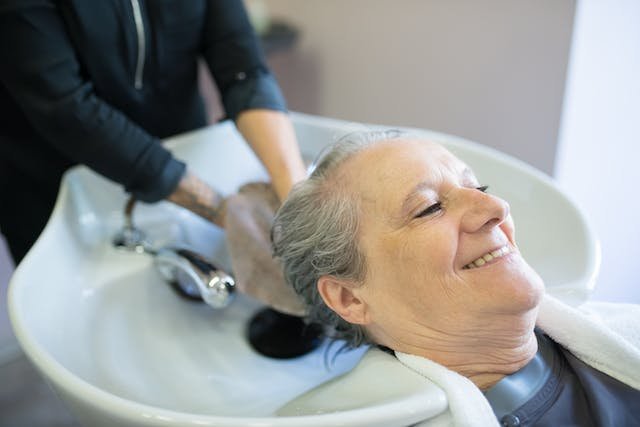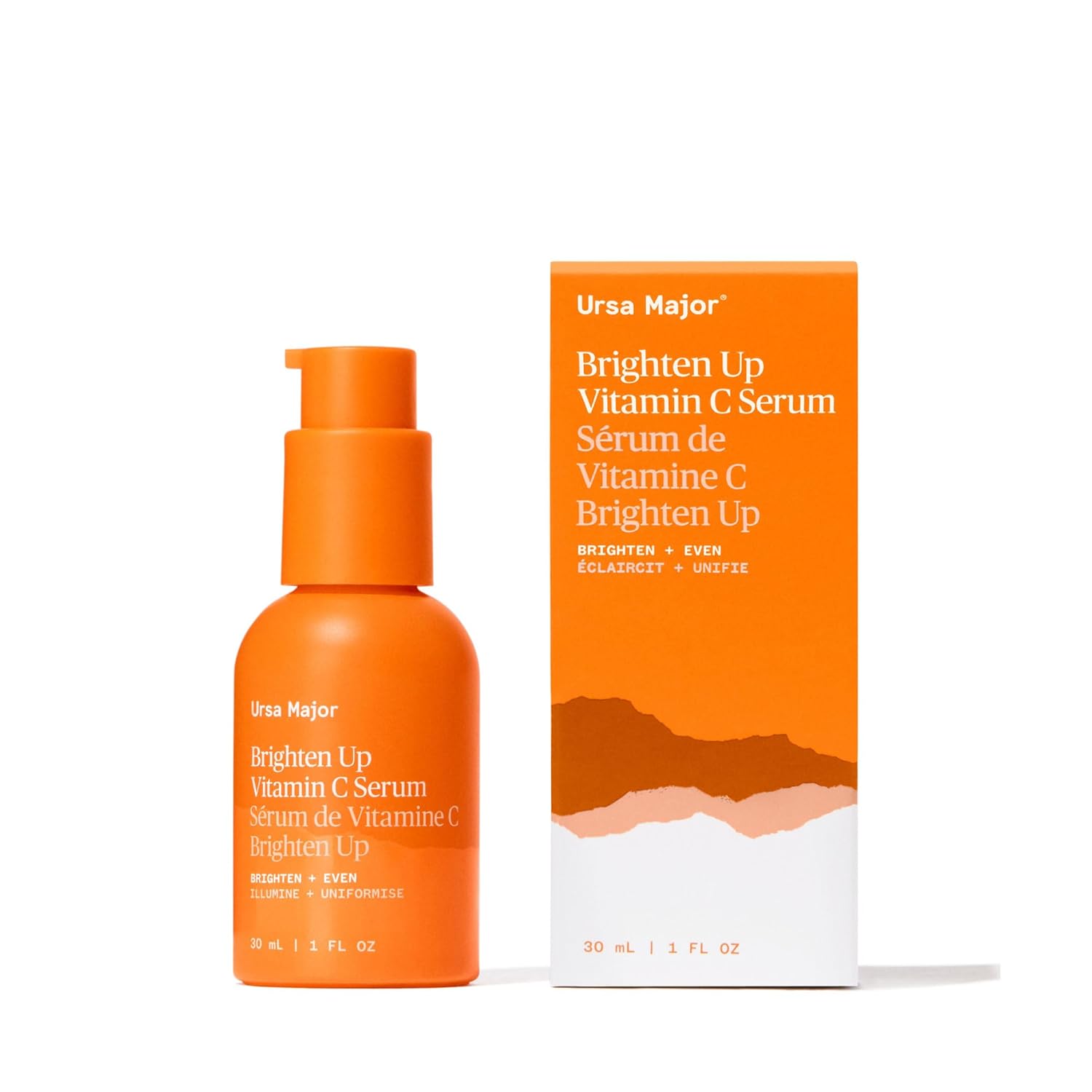Hair care claims must be accurate and supported by scientific evidence to ensure consumer trust. With the growing demand for natural ingredients and sustainable practices, transparency in hair care claims has become essential in the industry.
Consumers are increasingly seeking hair care products that deliver on their promises while being mindful of their impact on the environment. In today’s market, the focus is not only on achieving beautiful and healthy hair but also on the ethical and environmental aspects of the products being used. Young King Hair Care Shark Tank Success: A Mane Event
This has led to a greater scrutiny of hair care claims, with consumers looking for products that align with their personal values. As a result, it is crucial for hair care brands to substantiate their claims with scientific research and transparent communication to build credibility and trust with their audience. We will explore the importance of accurate hair care claims, the impact of ethical and environmental considerations, and the role of transparency in meeting consumer expectations.

Credit: dipalready.com
Hair Care Product Claims – What You Need To Know
Discover the truth behind hair care product claims. Uncover what you need to know about the effectiveness of hair care products and make informed decisions to achieve healthier, lustrous hair.
When it comes to hair care products, it’s important to know what claims are being made and whether they actually hold up. With so many products on the market making various promises, it can be overwhelming to determine what is true and what is just marketing hype.
To help you navigate this vast landscape, we’ve compiled some key information about hair care product claims that every consumer should be aware of:
Understanding The Terminology:
- “Clinically Proven”: This term implies that the product has undergone rigorous testing and has been scientifically shown to deliver the stated results.
- “Natural” or “Organic”: These terms are often used to appeal to consumers looking for more environmentally-friendly or chemical-free options. However, it’s important to read the ingredient list to ensure that the product truly meets these claims.
- “Dermatologist Recommended”: While this claim can suggest credibility, it’s essential to verify who specifically recommended the product. Generic endorsements may not hold much weight.
- “Sulfate-Free” or “Paraben-Free”: These claims indicate that the product does not contain specific ingredients that some people may wish to avoid due to potential irritations or health concerns.
- “Repair” or “Restore”: These claims are often made by products targeting damaged or dry hair. However, results can vary, so it’s important to manage your expectations and research customer reviews.
Considering The Claims:
- Look for evidence: Manufacturers may support their claims with studies, customer testimonials, or before-and-after photos. Make sure to review this evidence to get a better understanding of the product’s efficacy.
- Evaluate the source: Consider the credibility of the brand making the claims. Established and reputable companies are more likely to back up their statements with reliable research.
- Explore customer reviews: Check out what other people are saying about the product. Real-life experiences can provide valuable insights and help you make an informed decision.
- Be realistic: Keep in mind that no product can work miracles. Hair care products can improve the condition of your hair, but it’s important to set realistic expectations and give them time to work.
The Role Of Regulations:
- FDA Regulations: In the United States, the Food and Drug Administration (FDA) does not require pre-approval of cosmetic product claims. It is the responsibility of the manufacturer to ensure that their claims are truthful and not misleading.
- FTC Guidelines: The Federal Trade Commission (FTC) regulates advertising claims to ensure they are not deceptive or unfair. If a product claim seems too good to be true, it’s worth conducting further research and potentially reporting it to the FTC.
Remember to conduct thorough research and exercise critical thinking when evaluating hair care product claims. By understanding the terminology, considering the claims, and being aware of regulatory guidelines, you can make more informed decisions about the products you choose to incorporate into your hair care routine.
Discover the truth behind hair care claims to make informed decisions about products and treatments. Understanding the reality of what works and what doesn’t can help you achieve the best results for your hair. Look beyond marketing hype and learn how to care for your hair effectively.
Understanding Hair Care Claims
Hair care products often make various claims about their benefits and effectiveness. It’s important to understand these claims and their implications before making a purchase. Let’s explore the key aspects of hair care claims to make informed decisions.
Types Of Hair Care Claims
- Moisturizing:
- Some products claim to provide deep hydration to dry and damaged hair, improving overall moisture levels and nourishing the strands.
- Strengthening:
- Certain products assert the ability to strengthen hair strands, reducing breakage and promoting healthier, more resilient hair.
- Volumizing:
- Many products promise to add volume and thickness to limp or fine hair, creating a fuller and more voluminous appearance.
- Repairing:
- Some products claim to repair and rejuvenate damaged hair, addressing issues such as split ends and rough texture.
Evaluating Hair Care Claims
When assessing the validity of hair care claims, it’s essential to consider the following factors:
- Ingredients and Formulation:
- Analyze the key ingredients and formulation of the product to understand how it delivers on its claims.
- Testimonials and Reviews:
- Seek out unbiased customer testimonials and reviews to gauge real-life experiences with the product.
- Scientific Research:
- Look for evidence of scientific research or clinical trials supporting the product’s claims.
- Professional Recommendations:
- Consider the endorsements and recommendations from hair care professionals or experts in the field.
By carefully evaluating these aspects, consumers can make well-informed decisions regarding hair care products and their associated claims.
Evaluating Hair Care Product Claims
When evaluating hair care product claims, it is important to carefully review the ingredients and research the effectiveness of the product. Look for evidence and customer reviews to ensure the product lives up to its claims and suits your specific hair care needs.
In the world of hair care products, it’s essential to separate hype from reality. With so many claims on the labels, how can you know which ones are genuine and which are just fluff? Below, we’ll examine the best methods for evaluating hair care product claims.
Things To Consider
- Ingredient List: Ensure that the key active ingredients detailed on the product label are scientifically proven to have the claimed effects.
- Clinical Trials: Look for products that have undergone independent clinical trials to support their claims.
- Customer Reviews: Take note of the experiences of other consumers to gauge the actual effectiveness of the product.
- Professional Recommendations: Seek insights from hairstylists or dermatologists to validate the product’s claims.
Understanding Product Labels
- Key Terminology: Familiarize yourself with terms such as “strengthening,” “repairing,” and “smoothing,” and understand the specific functions they imply.
- Marketing Language: Be wary of exaggerated or vague statements that lack substance.
- Certifications: Look for certifications from reputable organizations that endorse the product’s claims.
Understanding the intricacies of hair care product claims can be a daunting task. By considering the product’s ingredients, conducting thorough research, and interpreting marketing language, you can make informed decisions about the products you choose to use.
Discover the truth behind hair care claims with essential information on how to effectively address common hair concerns. From promoting hair growth to preventing damage, uncover the secrets to achieving healthy and beautiful hair.
Hair Care Claims
Healthy, shiny, and luscious hair is often desired by many. In pursuit of achieving that perfect mane, we often come across numerous hair care claims. But how true are these claims? In this section, we will uncover some common hair care claims and shed light on their efficacy.
What Is The Science Behind Hair Growth?
Understanding the basics of hair growth is crucial before delving into various hair care claims. Hair is made up of a protein called keratin, which grows from the hair follicles embedded in the scalp. Each strand of hair goes through a growth cycle, consisting of a growth phase (anagen), transition phase (catagen), and resting phase (telogen).
During these cycles, certain factors can influence the health and appearance of our hair.
Claim 1: “this Product Promotes Hair Growth.”
- Increased blood circulation: Some products claim to improve blood circulation to the scalp, promoting hair growth.
- Nutrient-rich formula: Certain products contain essential vitamins and minerals that nourish the hair follicles, potentially stimulating growth.
- Scientific evidence: Look for products backed by scientific studies or research that prove their effectiveness in promoting hair growth.
Claim 2: “this Shampoo Repairs Damaged Hair.”
- Keratin infusion: Some shampoos claim to provide a boost of keratin, which can help repair damaged hair and restore its strength.
- Moisturizing properties: Look for shampoos that contain ingredients like argan oil or shea butter, known for their moisturizing benefits that can help repair dry and damaged hair.
- Reduce split ends: Certain shampoos claim to seal split ends, temporarily hiding the damage until a trim is needed.
Claim 3: “this Conditioner Adds Volume To Your Hair.”
- Lightweight formula: Conditioners that claim to add volume typically have a lightweight formula that provides moisture without weighing down the hair.
- Volumizing ingredients: Look for conditioners that include ingredients like collagen or hydrolyzed proteins, known for their ability to add body and thickness to the hair.
- Proper application: Applying the conditioner mainly to the ends of the hair can help avoid weighing down the roots and contribute to a voluminous look.
Claim 4: “this Serum Reduces Frizz And Promotes Shine.”
- Smoothing effect: Serums often contain ingredients like silicone or oils that help smooth out the hair cuticles, reducing frizz and promoting shine.
- Heat protection: Some serums claim to offer protection against heat damage caused by styling tools like straighteners or curling irons.
- Finishing touch: Serums can be used as a final step in hairstyling to add shine and tame flyaways, providing a polished look.
When it comes to hair care claims, it’s important to remember that individual results may vary. What works for one person may not necessarily work for another. Paying attention to the ingredients, scientific evidence, and understanding your hair’s specific needs can help you make informed decisions about the products you choose.
Embracing a well-rounded hair care routine that includes a balanced diet, proper hydration, and regular haircuts can also contribute to maintaining healthy hair.
Common Misleading Hair Care Claims To Watch Out For
Watch out for common misleading hair care claims that promise unrealistic results. Be aware of claims that guarantee instant hair growth, repair damaged hair completely, or prevent hair loss entirely. It’s important to research and consult professionals for accurate information and effective hair care solutions.
Hair care products are flooded with claims that promise to transform your hair into a glamorous masterpiece. However, not all of these claims are what they seem. It’s important to be informed and skeptical when it comes to hair care claims, to avoid wasting money on products that don’t deliver the desired results.
In this section, we will break down some common misleading hair care claims and help you navigate through the jungle of marketing tactics. Take a closer look at these misleading claims:
Exaggerated “instant Results”
- Claim: “Instantly repairs damaged hair!”
- Explanation: Many hair care products make bold claims about providing instant results, but the truth is that hair repair takes time and consistent use of the right products. Be cautious of products that promise immediate transformations.
Miracle Hair Growth
- Claim: “Grow thick, luscious hair overnight!”
- Explanation: While we all hope for a magic solution for hair growth, it’s important to understand that hair growth is a biological process that takes time. No product can miraculously stimulate hair growth overnight.
Chemical-free Fantasies
- Claim: “100% chemical-free formula!”
- Explanation: It is virtually impossible for any hair care product to be completely chemical-free. Misleading claims like these can evoke a sense of safety, but in reality, all products contain some chemicals. The key is to understand the difference between harmful chemicals and safe ones.
Unrealistic Permanent Straightening
- Claim: “Straighten your hair permanently without any damage!”
- Explanation: Permanent hair straightening involves altering the hair structure, which inherently causes damage. Be aware that claims of permanent straightening without side effects or damage are typically misleading. Always weigh the risks and benefits before making a decision.
Overnight Repair
- Claim: “Repair your damaged hair overnight!”
- Explanation: Repairing damaged hair is a gradual process that cannot be achieved overnight. While some products can improve the appearance and condition of your hair over time, overnight repair claims should be taken with a grain of salt.
Budget-friendly Salon Results
- Claim: “Get salon-quality results at a fraction of the price!”
- Explanation: Salon-quality results usually rely on the expertise of professional hairstylists and high-quality products. While budget-friendly options can provide decent results, be skeptical of claims that promise the same level of quality as a salon treatment.
Long-lasting Color
- Claim: “Color that never fades!”
- Explanation: Hair color naturally fades over time due to various factors like washing, exposure to sunlight, and heat styling. Claims of color that never fades are highly unlikely and should be approached with caution.
Supercharged Vitamins
- Claim: “Supercharged with vitamins and minerals for extraordinary hair growth!”
- Explanation: Vitamins and minerals are essential for maintaining healthy hair, but consuming a balanced diet is the most effective way to obtain these nutrients. Hair care products that claim to supercharge hair growth with vitamins alone may not deliver the desired results.
Magical Hair Repair
- Claim: “Reverse years of damage in just one wash!”
- Explanation: Hair damage usually accumulates over time, and reversing years of damage requires consistent care and nurturing. Claims that promise quick repair in a single wash are often misleading.
Exclusive Secret Formula
- Claim: “Exclusive secret formula discovered by top experts!”
- Explanation: Claims of exclusive secret formulas often aim to create a sense of exclusivity and superiority. These claims may not necessarily translate to superior performance or results. Always research and look for evidence-based ingredients that have proven benefits.
Remember, being an informed consumer and understanding the reality behind these claims is the key to making smart choices when it comes to hair care products. Don’t fall for misleading marketing tactics, and always prioritize scientifically-proven ingredients and reputable brands.
Your hair deserves the best care!
Frequently Asked Questions For Hair Care Claims
What Is The Lawsuit For Hair Care Products?
The lawsuit for hair care products is a legal action taken against the manufacturer or distributor of hair care products for alleged harm caused by their use. People may file a lawsuit if they believe the product caused hair loss, scalp irritation, or other negative effects.
What Are The Common Hair Problems?
Common hair problems include dandruff, hair loss, dryness, split ends, and frizz.
What Shampoos Have Been Linked To Hair Loss?
Some shampoos containing harsh chemicals and sulfates have been linked to hair loss. It’s important to read labels and opt for gentle, natural shampoos to promote hair health. Regularly switching shampoos may also help prevent potential hair loss.
What Is Hair Care Business?
Hair care business involves providing products and services for the maintenance and styling of hair. This includes shampoos, conditioners, styling products, and hair treatments. It also encompasses hair salons, barbershops, and spa services for hair care.
Conclusion
Taking care of your hair is a constant struggle, especially with the bombardment of hair care claims in the market. It’s essential to approach these claims with skepticism and do thorough research before making a decision. Understanding your hair type and its specific needs is crucial, as not every product will work wonders for everyone.
By staying informed and sticking to a consistent hair care routine, you’ll be able to achieve healthier, stronger, and more beautiful hair. So, don’t be swayed by empty promises and invest in products that truly cater to your hair’s needs.



